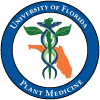Dr. Chris Ferguson
Why did you choose to enroll in the DPM program?
While pursuing my MS in Plant Science, I knew that I wanted to continue my education. I found the DPM program online and after some research on the degree, I knew it was for me. I am a hands-on person who loves to be in the field and the DPM degree trains students to become excellent scouts, diagnosticians, and ultimately managers of crops. The broad scope of the degree allows you to understand multiple areas related to plant growth and health. A DPM can understand literature regarding an insect or nematode affecting plants as easily as plant pathology problems and have the knowledge to apply IPM tools to manage these issues.
After graduation, what career paths/opportunities were available to you?
After graduation, I applied to many positions relating to extension, pest management and IPM. There were many research positions open at the time which a DPM would be qualified, however, that was not the route for me. My first position after graduating was with a large potato farm managing pesticide and fertilizer applications as well as scouting for insect and diseases.
What is your current occupation, and how has your DPM degree aided you in the tasks and responsibilities associated with your position?
I am currently the Crop Protection Manager for Hopewell Nursery. We are one of the largest ornamental nurseries in New Jersey and primarily grow for Home Depot stores. We grow trees, shrubs and perennials on multiple farms. I run a spray crew for each farm. My primary job is scouting and identification of pests and diseases through incubation, microscopy, and lab techniques. After diagnosis, I work through a management plan of biotic and/or abiotic factors which may contribute to the spread of the pest or disease. I train all my pesticide handlers and make sure they have the proper equipment for the job. I calibrate and service every sprayer with the help of my workers. During the winter, I coordinate fertilizer applications and collect water record data for the state.
Are there any challenges that your DPM degree has helped you overcome?
The DPM degree has allowed me to be well-rounded and allows me to step back and assess a situation from multiple angles. Prior to my arrival, there were problems with plants that were constantly being sprayed with fungicides but with no success. After examination and research, the pathogen turned out to be bacterial. Changing chemicals resolved the issue and saved the company money. Other plants were being sprayed when the problem was edema and culprit was abiotic. This was resolved by moving the plants to a more suitable environment. My knowledge in entomology has helped me find insect problems previously undetected at the farm as well as the association of known insects on the farm as vectors of diseases the company has battled for years.
Do you have any advice for current DPM students?
My advice is to be open to all career possibilities. For the vast majority, the first job after graduation will not be your only one. It will open doors though and allow you to understand the industry better. The DPM program is making great strides in establishing itself. You may have to educate your employer as to the importance of your degree. My past job was previously held by a DPM whereas my current employer had never heard of us and had many questions through the interview about exactly what it is that we do. Don’t get discouraged. After a few years, your experience in the industry combined with your education and great track record will open many doors.

